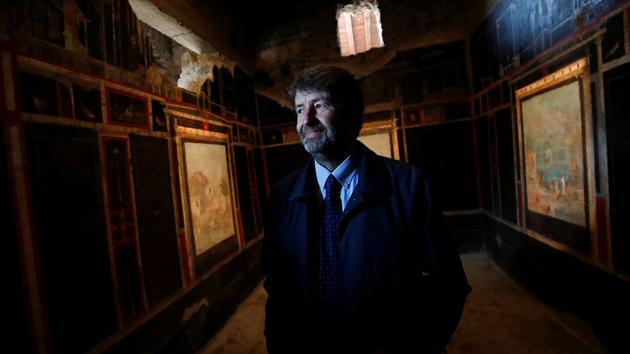The Italian Minister of Culture Dario Franceschini had promised it in 2016. He did so in 2021, announcing the end of state control over the freedom of artists.
Clearly, he specifies:
"Film censorship is abolished."
In Italy, it will no longer be possible to prohibit the theatrical release of a film, nor to cut or modify scenes to obtain the exploitation visa.
From now on, only a committee of 49 competent members on childhood will validate, within 20 days, the classification of works produced by the producers and distributors themselves with regard to sensitive content in terms of the protection of minors.
Self-regulation, inspired by the American model.
A page of nearly a century of censorship thus turns, which found, for the most varied reasons, material to be expressed: politics, violence, sex, religion were the great battlefields of censorship. against cinema, as shown in the virtual exhibition “Cinecensura”.
The fascist regime, which favored the cinema as a propaganda tool by creating Cinecittà in particular, had planned a very strict surveillance system with the Rocco code, which notably allowed the seizure of
Ossessione
de Visconti.
Read also:
Neorealism hits the mark in Italy
But after the fall of fascism, control continued:
"Even after the war, we could not talk about either the war or the resistance",
tells the director Francesco Maselli in Francesco Martinotti's film on the association of authors, the Anac.
The authors of Italian realistic cinema which showed the misery of Italy were invariably treated as
"communists",
like Pasolini with his first big film
Accattone
.
Read also:
Cinecitta on the way to a new dolce vita
In the name of the good reputation of the police, politics and civil servants,
Totò e Carolina
by Monicelli (1955) is blocked for two years, its director, forced to make 80 cuts for
"offenses against the forces of order ”
, and to transform militants of the PCI into Alpine soldiers.
Destruction of copies
After the fight led by Anac in 1962, the left limited the restrictions to films that offended morality.
Appealing to the penal code, this time it was associations that demanded the seizure of works deemed indecent.
Thus in 1972, justice ordered the destruction of all copies of the
Last Tango in Paris
by Bertolucci, who had his civil rights withdrawn for five years.
Censorship also remained very attentive to representations of the Catholic Church, omnipresent in Italian films.
Today, remarks Francesco Martinotti, president of Anac,
"if state censorship has disappeared, it is the censorship of television channels and advertising that is rife".
And to remember that
Il Divo
by Sorrentino (2008), the film on the life of Giulio Andreotti, a great figure of Christian Democracy close to the Mafia, was banned from broadcasting at RAI for ten years.













/cloudfront-eu-central-1.images.arcpublishing.com/prisa/IGZ7GOCXZ5GUPAQ2HWGK6Z76BU.jpg)